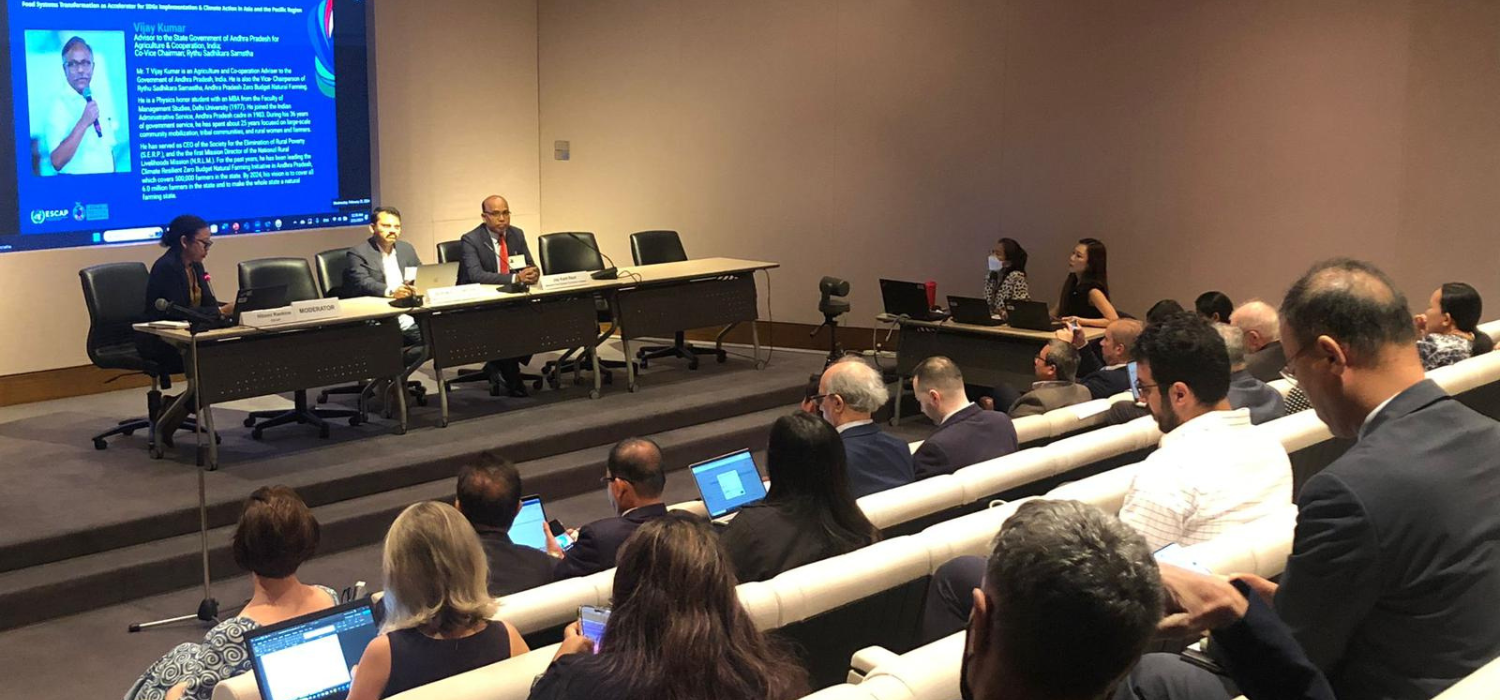SEED FUNDING JOINT PROGRAMMES
Cambodia
Transforming Cambodia’s food systems to become more sustainable, inclusive, and resilient


PROJECT TITLE | Transforming Cambodia’s food systems to become more sustainable, inclusive, and resilient |
| Context | Cambodia’s National Pathway is the outcome of an extensive consultation process, involving more than 2,000 people throughout thirty dialogues, which identifies four priority areas, namely healthy diets for all, empowerment of youth, women and vulnerable groups, resilient livelihoods and food systems, inclusive governance. Acknowledging the risks posed by climate change to hard won development gains and as a co-founder of the Alliance of Champions for Food Systems Transformation, Cambodia is prioritizing the integration of climate change and food systems transformation, building coherence across the agendas. The Council for Agricultural and Rural Development, the government agency coordinating food security and nutrition initiatives in Cambodia, is leading collaborative efforts to translate national aspirations into concrete action. |
| PUNOs | FAO, WFP, UNICEF |
| Contribution to SDGs | SDG 2 Zero Hunger |
| Contribution to other SDG transitions | Climate, biodiversity, pollution |
| Duration | August 2024 – July 2025 |
| Expected financial leverage | $3 million |
| Alignment with SG Call to Action | Policy integration; Food systems governance; Inclusive and participatory design; Private sector engagement |
| Outcomes | The Joint Programme fosters an enabling environment for food systems transformation by enhancing national capacities and policy frameworks, identifying opportunities to unlock financial streams, and strengthening advocacy efforts for food systems transformation. The JP provides crucial support to the alignment of the climate and food agendas, accelerating progress towards resilient, sustainable and inclusive food systems. |
| Partners | Council for Agricultural and Rural Development (CARD) will be the main government counterpart and will coordinate the government activities in conjunction with other key Ministries, including:
|
| Outputs |
|
Insights on building sustainable food systems in Asia-Pacific

Bangkok, Thailand – During the 11th Asia-Pacific Forum for Sustainable Development (APFSD), the UN Food Systems Coordination Hub, ESCAP, and FAO collaborated on hosting a side event entitled: ‘Food Systems Transformation as an Accelerator for SDGs Implementation and Climate Action in Asia and the Pacific Region’. The event served as a follow up to the UN Food Systems Summit +2 Stocktaking Moment (UNFSS+2), offering a diverse array of perspectives on aligning food systems transformation with climate action, drawing insights from key global summits in 2023 such as the UNFSS+2, the SDGs Summit, and COP28.
Leadership interventions
The event commenced with interventions from distinguished leaders: Sangmin Nam, Director for Environment and Development division at ESCAP, Jong-Jin Kim FAO Assistant Director-General for Asia and the Pacific and Stefanos Fotiou, Director of the FAO Office of SDGs and the UN Food Systems Coordination Hub. They emphasized the crucial need for collaboration among UN agencies and across regions in accelerating SDG implementation and climate action. Underscoring the significance of the Emirates Declaration on Sustainable Agriculture, Resilient Food Systems, and Climate Action, endorsed by 159 countries, they outlined ambitious plans to update Nationally Determined Contributions (NDCs) by 2025, integrating action items on food systems.
Country experiences
Jay Kant Raut, National Convenor for Nepal, provided valuable insights into their national strategies aimed at advancing SDG 2 (Zero Hunger). Nepal's government has demonstrated a resolute commitment to embracing the SDGs, leading to significant advancements across socioeconomic, environmental, and political domains. The nation has achieved notable reductions in undernourishment, global hunger rates, stunting, and wasting, vividly showcasing the benefits of their dedicated efforts.
Meanwhile, H.E. Sok Silo, National Convenor for Cambodia, highlighted the significant role of UNFSS+2 and COP28 in catalyzing global change across Cambodia. He presented the Pentagonal Strategy, a comprehensive plan aimed at bolstering social protection and enhancing food security amid climate challenges. Cambodia's commitment to global cooperation is further demonstrated by its role as a founding member of the Alliance of Champions for Food Systems Transformation. H.E. Sok Silo emphasized the crosscutting nature of food systems, advocating for integrated actions among government ministries, local authorities, civil society, and the private sector, suggesting that such mechanisms be led by the office of the president or prime minister.
Stakeholder initiatives
Various stakeholder initiatives were showcased during the event. Rebecca Leonard from the TEEBAgriFood Initiative emphasized the imperative of incorporating sustainability into agricultural and food policies, citing case studies on organic rice production in Thailand to highlight the benefits of transitioning to organic practices. Vijay Kumar and Sudhakar Yerrakonda shared valuable insights from the 'Rythu Sadhikara Samstha' farmer pilot project initiated by the government of Andhra Pradesh, India. The program, which enrolled 850,000 farmers, demonstrated a significant increase in the availability of nutrient-dense foods through regenerative agriculture methods. They elaborated on the key lessons learned in scaling up the project, notably through the organization of rural women networks.
Thongdam Phongphichith of SAEDA, Lao PDR, provided insights into the benefits of multistakeholder collaboration, acknowledging challenges in farmer and rural people capacity and access to climate information. He also highlighted further challenges of farmers on appropriate technology and the need for long-term program support. This was complemented by Jidan Fikri, runner-up of the youth climathon of the APFSD, highlighted challenges faced by farmers in adopting new technologies for climate-resilient agriculture, including cost, complexity, and maintenance. His initiative, "Terragrow," aimed to address these challenges with a simple, low-cost solution accessible to those without technical backgrounds.
Closing remarks
Stefanos Fotiou concluded the event by reiterating the importance of transitioning towards sustainable agriculture, overcoming vested interests, establishing new financial structures, mainstreaming private sector accountability and advocating for regulatory changes which encourage sustainable consumer habits.
View the recording
